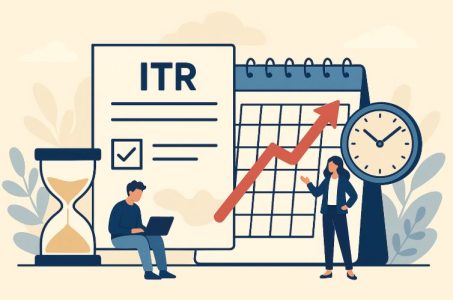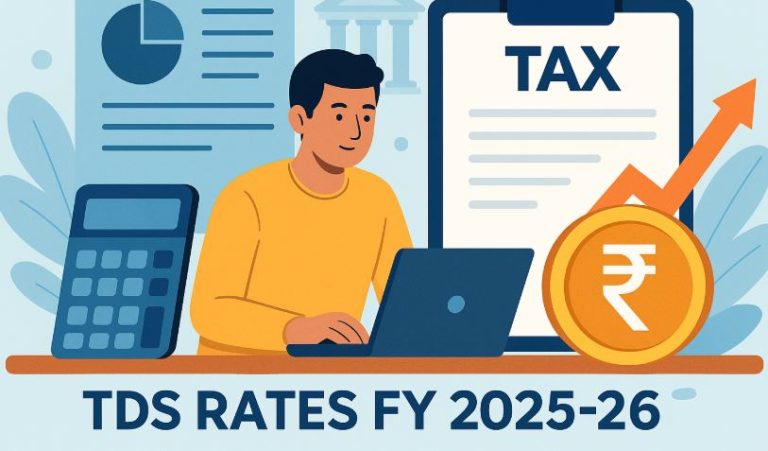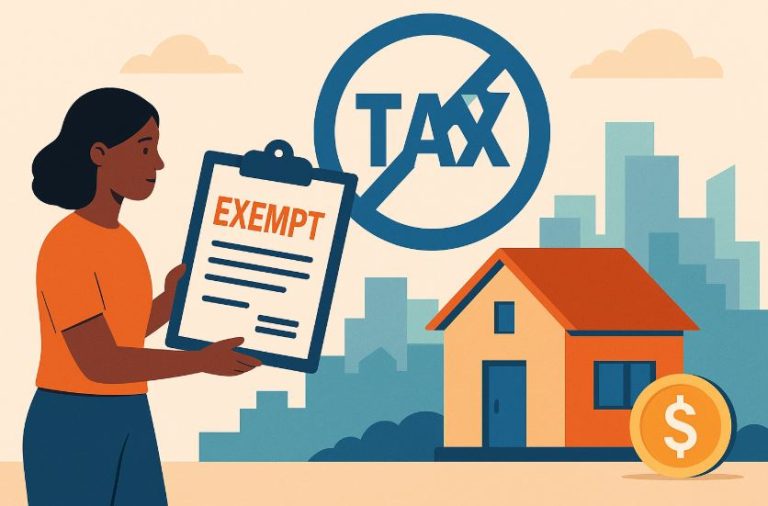As the financial year draws to a close, taxpayers across India are gearing up for one of the most crucial dates on their compliance calendar, the Income Tax Return (ITR) filing deadline.
This extension from the standard 31 July deadline offers a valuable window for taxpayers to organise their finances, correct reporting errors, and ensure timely filing.
This comprehensive guide answers key questions around ITR filing, explains eligibility for different forms, breaks down the tax audit implications, and walks you through everything you need to file confidently before the deadline.
Why Has the ITR Deadline Been Extended?

The 15 September 2025 deadline applies to non-audit taxpayers, who form the majority of individual and small business filers in India.
This extension was officially announced by CBDT via a notification, considering the need to provide relief and extra time for return preparation amid digital transitions and procedural updates.
Key Reasons Behind the Extension
- To reduce the burden on taxpayers, particularly non-audit entities
- To ensure smooth functioning of the e-filing portal with minimal traffic congestion
- To allow users to make the most of pre-filled ITR forms
- To enhance voluntary compliance and filing accuracy
This extended due date does not apply to tax audit cases, whose due date remains unchanged. For taxpayers subject to audit under the Income Tax Act, separate deadlines will be applicable based on turnover and the nature of business.
Impact on Taxpayers
The extra time enables taxpayers to:
- Gather relevant income documents
- Validate pre-filled information for errors
- Choose the most beneficial tax regime
- Claim all eligible deductions and exemptions
This helps minimise last-minute errors, which could otherwise lead to revised returns or penalties.
Who Needs to File an ITR Before the Due Date?
Not every Indian citizen is required to file an ITR, but many must, either as a legal obligation or for financial convenience. Understanding who should file is the first step toward tax compliance.
Mandatory ITR Filing Applies To:
- Individuals with income exceeding the basic exemption limit:
- ₹2.5 lakh (for individuals below 60)
- ₹3 lakh (for senior citizens 60-80)
- ₹5 lakh (for super senior citizens above 80)
- Residents holding assets outside India or signing authority in foreign accounts
- Individuals claiming tax refunds
- Those with income from multiple sources (salary, house property, capital gains, etc.)
- Individuals applying for loans or visas requiring proof of income
- Professionals and businesses under the presumptive taxation scheme
Even if your income is below the threshold, filing an ITR can help establish financial credibility and allow loss carry-forwards for future years.
Filing Is Also Recommended For:
- Freelancers and gig economy workers
- NRIs with income taxable in India
- Students earning through internships or part-time work with TDS deducted
- Individuals investing in shares or mutual funds
What Counts as a Non-Audit Case in Tax Filing?

A non-audit case refers to taxpayers whose books of accounts are not required to be audited under Section 44AB of the Income Tax Act. Most individual taxpayers and small businesses fall into this category, provided their income and turnover remain within the prescribed limits.
Who Qualifies as a Non-Audit Case?
- Salaried individuals with income from salary, interest, house property, etc.
- Small businesses under Section 44AD with turnover under ₹2 crore
- Professionals under Section 44ADA with gross receipts up to ₹50 lakh
- Transport operators under Section 44AE
Audit Requirement Triggers
An audit is mandatory if:
- Business turnover exceeds ₹2 crore (for normal business)
- Gross receipts exceed ₹50 lakh (for professionals)
- Net profit declared is less than 6% or 8% under presumptive taxation
- The taxpayer has opted out of the presumptive scheme after opting in for a few years
Understanding your audit status is critical, as it affects not only the due date but also the type of ITR form you need to use.
Tax Audit ITR Filing Due Date 2025
For tax audit cases, the ITR filing timeline differs. Businesses and professionals who are subject to audit under the Income Tax Act must adhere to earlier deadlines than non-audit cases.
Tax Audit Due Dates for FY 2024–25 / AY 2025–26
| Taxpayer Type | Audit Required? | ITR Filing Due Date |
| Individuals with no audit requirement | No | 15 September 2025 |
| Businesses under audit | Yes | 31 October 2025 |
| Transfer Pricing cases (Form 3CEB) | Yes | 30 November 2025 |
Forms Required for Tax Audit Cases
- Form 3CA/3CB and 3CD: Mandatory for submitting audit reports
- Form 3CEB: Applicable for international or specified domestic transactions
Filing your tax audit report before submitting your ITR is essential. If the report is delayed, the ITR may be treated as defective, leading to notices from the Income Tax Department.
Which ITR Form Should a Taxpayer Use in AY 2025–26?
Choosing the correct ITR form ensures smooth processing and prevents returns from being rejected or marked as defective.
ITR Forms for Non-Audit Cases
| Form | Suitable For |
| ITR-1 (Sahaj) | Salaried individuals with income up to ₹50 lakh |
| ITR-2 | Individuals/HUFs with capital gains or multiple house properties |
| ITR-3 | Individuals/HUFs with business or professional income |
| ITR-4 (Sugam) | Presumptive income scheme (Sections 44AD/44ADA/44AE) |
Important Notes
- Individuals earning capital gains must avoid ITR-1
- Directors or those owning unlisted shares must avoid ITR-1 and ITR-4
- Use ITR-2 or ITR-3 if income is from foreign sources or multiple assets
It’s essential to cross-verify your income structure before selecting a form. Filing the wrong form could lead to penalties and resubmission.
How Are Financial Year and Assessment Year Different?

Many taxpayers confuse the terms Financial Year (FY) and Assessment Year (AY). Understanding this difference is key to filing the return for the right period.
Definition Breakdown
- Financial Year (FY): The year in which income is earned
Example: 1 April 2024 – 31 March 2025 = FY 2024–25 - Assessment Year (AY): The year in which income is assessed and taxed
Example: AY 2025–26 (for income earned in FY 2024–25)
Key Differences
| Basis | Financial Year (FY) | Assessment Year (AY) |
| Income Activity | Income is earned | Income is assessed |
| ITR Filing | No filing required | ITR is filed |
| Government Action | Not applicable | Tax computed & refunds processed |
So, when you’re asked to file ITR for AY 2025–26, you’re actually reporting income earned during FY 2024–25.
What Are the Penalties for Late ITR Filing in 2025?
Filing your ITR after the deadline may result in monetary penalties and interest charges. The Income Tax Act specifies fines based on income slabs.
Late Filing Fee Structure
| Total Income | Late Fee |
| Up to ₹5 lakh | ₹1,000 |
| Above ₹5 lakh | ₹5,000 |
Interest Charges
If tax remains unpaid, interest at 1% per month is levied under Section 234A from the due date until the date of actual filing.
Other Consequences
- Ineligibility to carry forward losses (except for house property)
- Delay in receiving tax refunds
- Possible scrutiny notices in case of mismatched data
Avoiding delays ensures not only financial savings but also peace of mind during future assessments.
How Does the New Tax Regime Compare to the Old One?
Taxpayers can now choose between the Old Tax Regime and the New Tax Regime, each offering different tax structures.
Comparison
| Feature | Old Regime | New Regime (Default from FY 2023–24) |
| Tax Slabs | Higher | Lower |
| Deductions | Numerous (80C, 80D, HRA, etc.) | Very limited |
| Standard Deduction | ₹50,000 | ₹75,000 (only for salaried) |
| Exemptions on investments | Allowed | Not allowed |
| Default for FY 2024–25 | Optional | Default |
Choosing the Best Regime
- Opt for Old Regime if you invest in tax-saving instruments
- Prefer New Regime for simpler compliance and higher take-home income
Taxpayers must declare their chosen regime each year at the time of filing. Salaried individuals can switch annually, while businesses must lock in their choice.
How to File ITR Online on the e-Filing Portal?

Filing an ITR online has become more streamlined, especially with pre-filled data, Aadhaar-based OTP login, and simple UI.
Steps to File ITR
- Visit the Income Tax e-Filing portal (incometax.gov.in)
- Log in using PAN or Aadhaar and password
- Select “File Income Tax Return”
- Choose Assessment Year 2025–26
- Pick the correct ITR form
- Verify pre-filled information and make necessary edits
- Select tax regime (old or new)
- Submit and e-verify using Aadhaar OTP, net banking, or EVC
After successful submission, an acknowledgement (ITR-V) is generated. It’s advisable to keep it stored for your records.
Why Has ITR Filing Seen a Surge in Recent Years?
According to the CBDT, there has been a steady increase in the number of ITRs filed year-on-year, indicating growing awareness and ease of compliance.
Key Highlights for AY 2024–25
- 7.28 crore ITRs filed till 31 July 2024
- Over 69.92 lakh returns filed in a single day
- 72% taxpayers opted for the new tax regime
- 58.57 lakh first-time filers joined the tax base
Reasons Behind the Surge
- User-friendly e-filing portal
- Simplified forms and processes
- Government campaigns promoting tax literacy
- Mandatory PAN-Aadhaar linking
- Increased financial documentation and digital payments
The upward trend reflects not only individual compliance but also a more formalised and transparent economy.
Conclusion: Don’t Miss the September 15th Deadline
Filing your ITR is more than just a legal responsibility; it’s a mark of financial discipline. With the 15 September 2025 due date fast approaching for non-audit taxpayers, now is the time to gather documents, review incomes, and file your return accurately.
The growing volume of digital filings and the government’s proactive steps toward ease of compliance are making the tax journey smoother for everyone.
Whether you’re a salaried employee, a freelancer, or a small business owner, early and accurate filing will help you avoid penalties, secure faster refunds, and strengthen your financial profile.
Let this tax season be an opportunity to embrace the digital shift and stay ahead in your financial planning.
Frequently Asked Questions
Is the 15 September 2025 ITR deadline applicable to all taxpayers?
No, this extension is only for non-audit taxpayers. Audit cases have different deadlines.
What happens if I miss the ITR deadline?
You may have to pay a late fee and interest on tax due. You’ll also lose the benefit of carrying forward losses.
Can I switch between the old and new tax regimes each year?
Yes, salaried individuals can switch annually. However, businesses need to stick with their choice unless specific conditions are met.
What is the last date for audit report submission for AY 2025–26?
For audit cases, the last date to submit the audit report is 30 September 2025.
Is Aadhaar mandatory for e-verifying ITR?
Yes, Aadhaar OTP is one of the most common methods used for e-verification.
Do I need to submit documents with the ITR?
No, the ITR process is document-free. But keep all records ready in case of future verification or scrutiny.
Can NRIs file ITR in India?
Yes, NRIs must file ITR if their Indian income exceeds the basic exemption limit or if TDS has been deducted.




